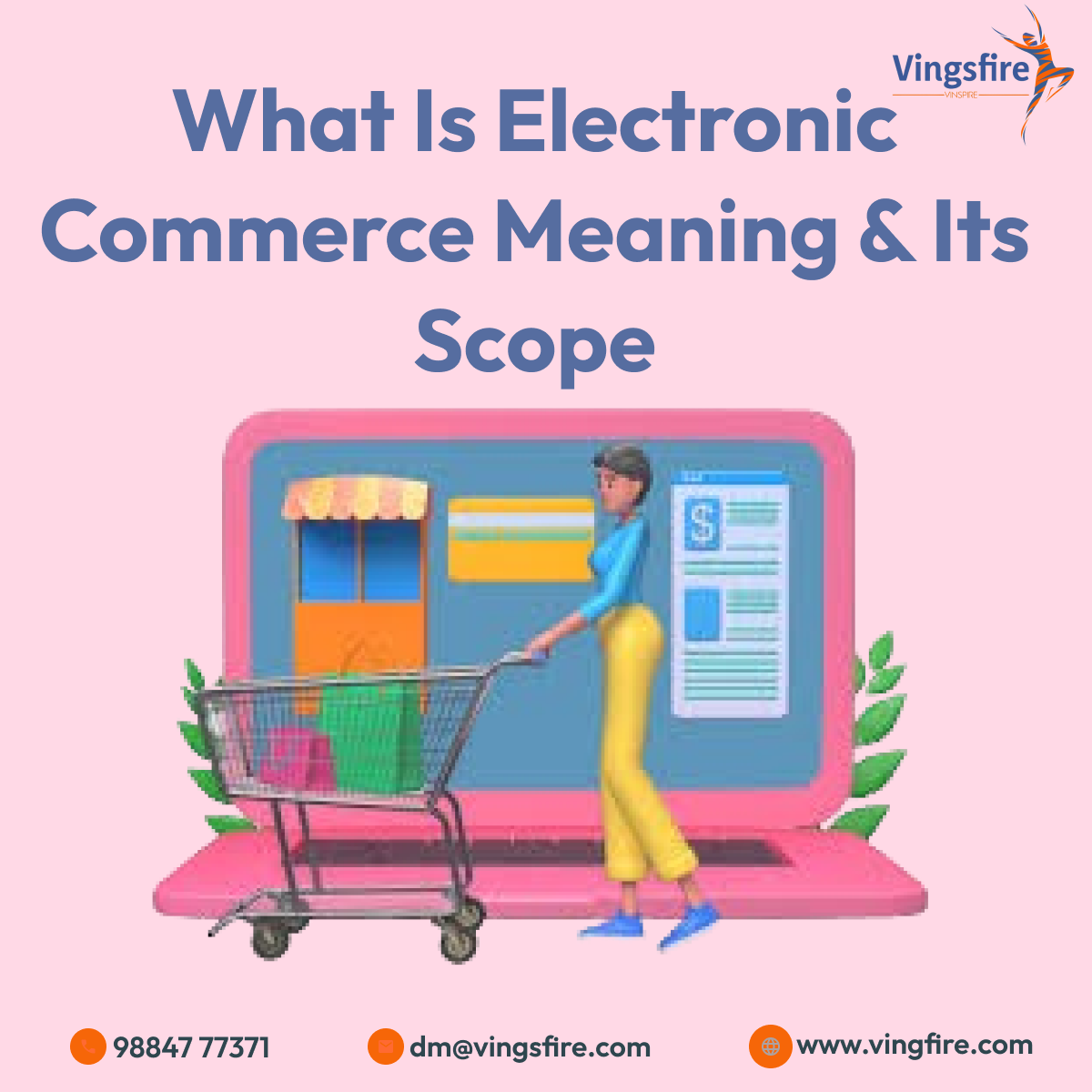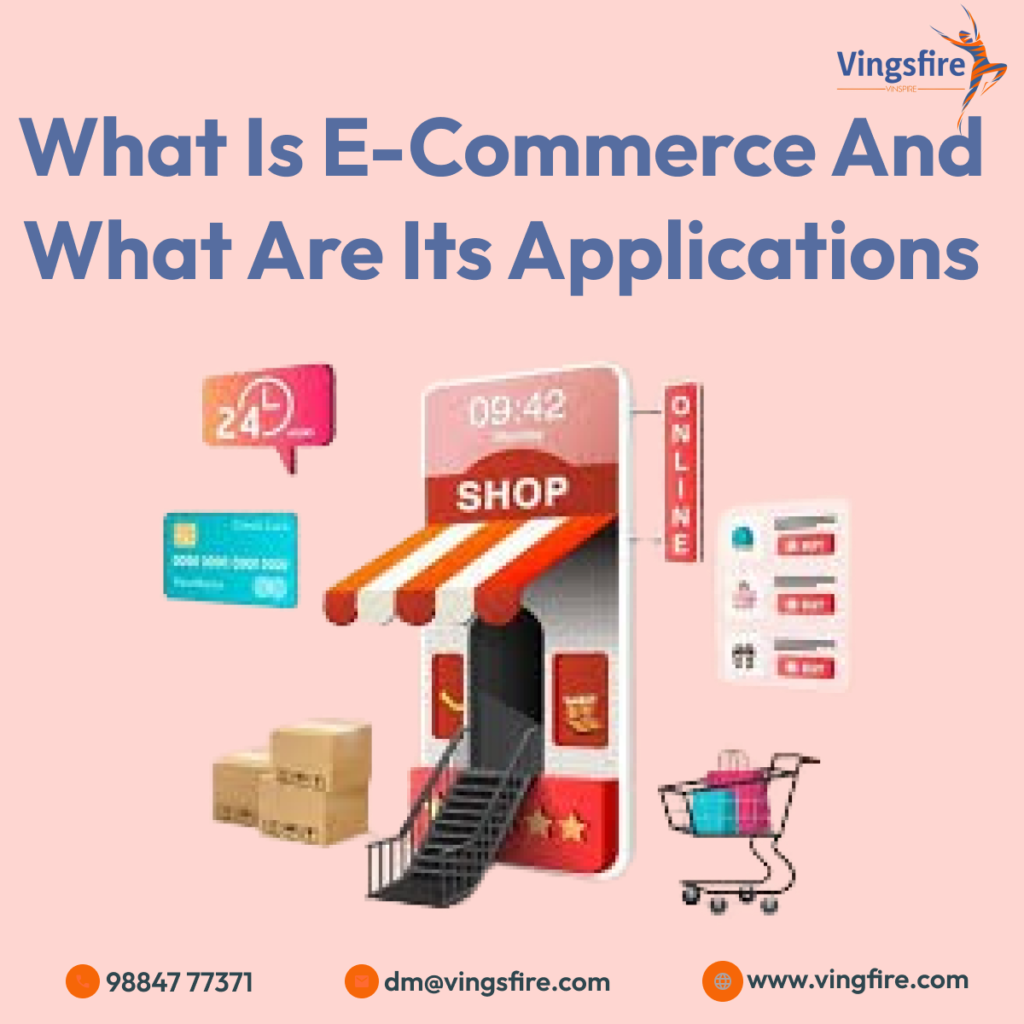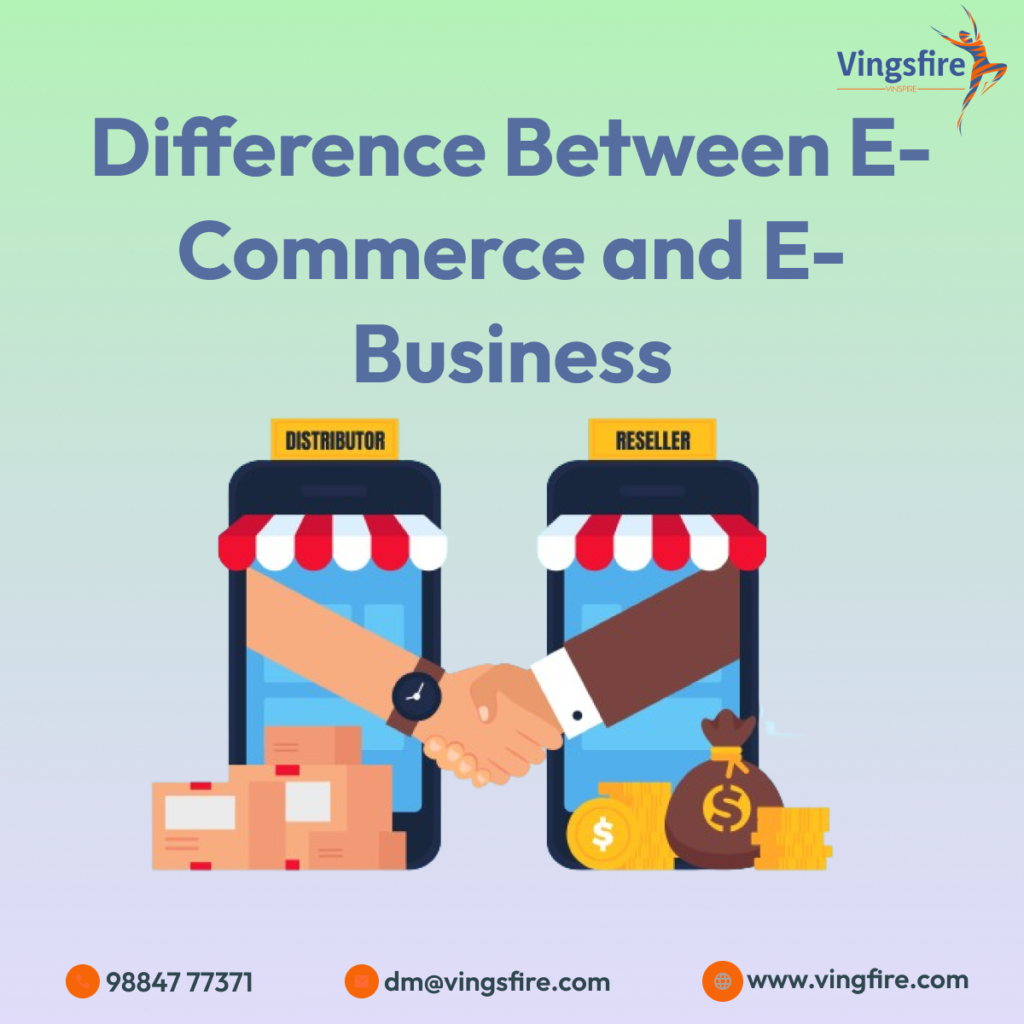In the ever-evolving landscape of the digital era, Electronic Commerce, commonly known as E-commerce, has emerged as a transformative force reshaping the way we conduct business. This blog post aims to unravel the meaning of electronic commerce and delve into its expansive scope, exploring the myriad possibilities it offers to businesses and consumers alike electronic commerce meaning.
Learn More About Vingsfire:-
1.LINKEDIN
2.FACEBOOK
Understanding Electronic Commerce:
Electronic Commerce refers to the buying and selling of goods and services over the internet or any electronic network. This process involves the use of various technologies such as mobile devices, online platforms, and electronic data interchange to facilitate transactions between businesses and consumers electronic commerce meaning.
Components of E-commerce:
Online Retail: The most recognizable form of E-commerce, where businesses sell products directly to consumers through digital platforms.
Electronic Payments: Facilitating financial transactions electronically, ensuring secure and seamless payment processes.
Supply Chain Management: Integrating digital technologies to enhance the efficiency of the entire supply chain, from production to delivery.
Online Marketing: Utilizing digital channels for marketing and promoting products or services to a global audience.
The Scope of Electronic Commerce:
1.Global Reach:
One of the most significant advantages of E-commerce is its ability to transcend geographical boundaries. Businesses can reach a global audience without the constraints of physical location, enabling them to tap into diverse markets and customer bases.
2.Increased Convenience:
For consumers, E-commerce provides unparalleled convenience. The ability to browse, compare, and purchase products from the comfort of their homes, 24/7, has revolutionized the shopping experience.
3.Diverse Business Models:
E-commerce accommodates various business models, including Business-to-Consumer (B2C), Business-to-Business (B2B), Consumer-to-Consumer (C2C), and more. This versatility allows businesses to choose models that align with their goals and target audience.
4.Enhanced Customer Engagement:
Digital platforms enable businesses to engage with their customers in real-time. Social media, personalized marketing strategies, and interactive websites contribute to building strong customer relationships and loyalty.
5.Data-Driven Decision Making:
E-commerce platforms generate vast amounts of data that can be analyzed to gain insights into consumer behavior, preferences, and market trends. This data-driven approach empowers businesses to make informed decisions and tailor their strategies for optimal results & electronic commerce meaning.
6.Technological Advancements:
As technology continues to advance, so does the scope of E-commerce. Innovations such as artificial intelligence, virtual reality, and augmented reality are being integrated into E-commerce platforms to enhance user experiences and drive sales.
7.Evolving Business Landscape:
E-commerce has transformed traditional business models and given rise to new opportunities. Brick-and-mortar businesses are increasingly adopting online strategies to stay competitive, blurring the lines between physical and digital commerce.
Conclusion:
Electronic Commerce, with its vast scope and transformative potential, continues to shape the business landscape in unprecedented ways. From revolutionizing the way businesses operate to providing consumers with unparalleled convenience, E-commerce is a dynamic force that will undoubtedly play a central role in the future of commerce. Embracing the digital realm, businesses can harness the power of E-commerce to reach new heights and stay ahead in an increasingly competitive global market & electronic commerce meaning.













